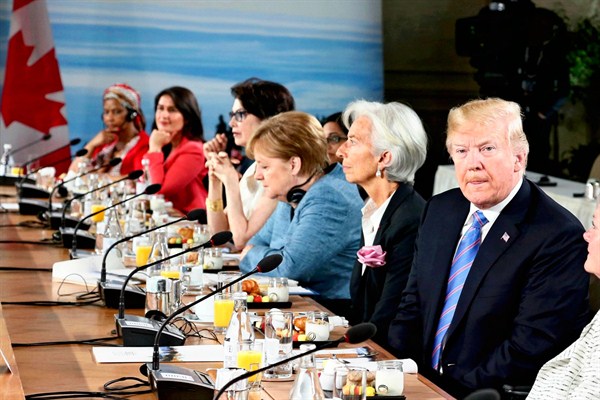In January 2017, as Donald Trump prepared to enter the White House, predictions of what his foreign policy might look like ran the gamut from a retreat into neo-isolationism to a reassertion of bare-knuckled power politics. As the incoming administration scrambled to name the team that would be responsible for translating the president-elect’s rhetoric into policy, I speculated about what might replace the liberal world order he had inveighed against during the campaign. Two years later, in light of his actual policies, the time is ripe to consider whether these scenarios were prescient or unfounded.
Candidate Trump had made his instincts clear: Tired of seeing the United States played for a sucker, he promised to place “America first,” abandoning global leadership and adopting a transactional foreign policy. He disdained international organizations, treaties and law as infringements on U.S. sovereignty and freedom of action; regarded the United Nations and other global bodies as worthless talk shops; and viewed longstanding alliances like NATO as protection rackets. Describing economic competition as a zero-sum game, he pledged to withdraw from “unfair” multilateral trade deals and use America’s market leverage to win concessions through bilateral negotiations. He disdained human rights and democracy promotion and admired strongmen unconstrained by the niceties of electoral politics, or even democratic checks and balances. He valued military force above civilian power instruments like diplomacy and development aid. Finally, he demanded that America regain control over its porous borders, to preserve its identity, safety and prosperity.
In short, the president-elect rejected the principles and sought to dismantle the institutional foundations of an open world that 12 previous administrations had built and defended since 1945. It was less obvious what sort of world might succeed the one that America had made. I proposed five potential alternatives.

